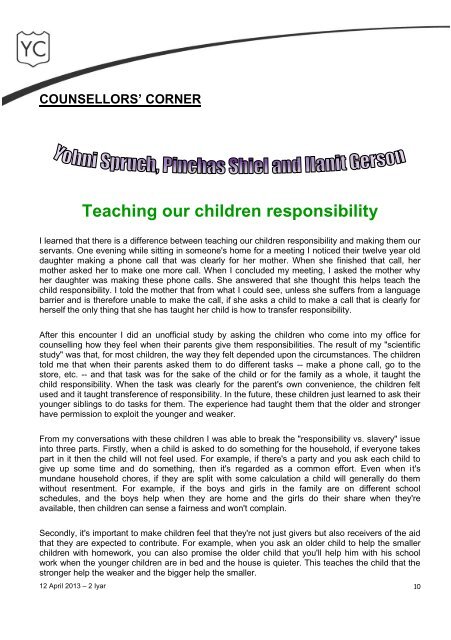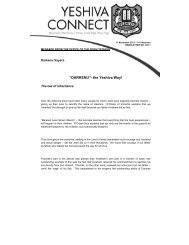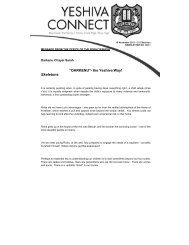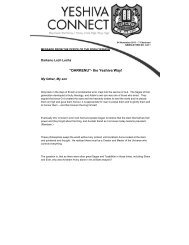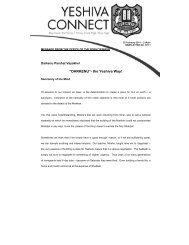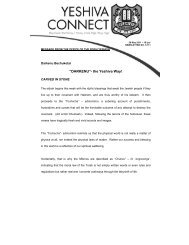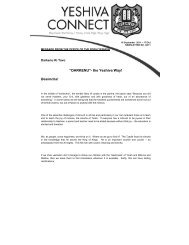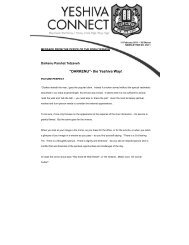Create successful ePaper yourself
Turn your PDF publications into a flip-book with our unique Google optimized e-Paper software.
COUNSELLORS’ CORNER<br />
Teaching our children responsibility<br />
I learned that there is a difference between teaching our children responsibility and making them our<br />
servants. One evening while sitting in someone's home for a meeting I noticed their twelve year old<br />
daughter making a phone call that was clearly for her mother. When she finished that call, her<br />
mother asked her to make one more call. When I concluded my meeting, I asked the mother why<br />
her daughter was making these phone calls. She answered that she thought this helps teach the<br />
child responsibility. I told the mother that from what I could see, unless she suffers from a language<br />
barrier and is therefore unable to make the call, if she asks a child to make a call that is clearly for<br />
herself the only thing that she has taught her child is how to transfer responsibility.<br />
After this encounter I did an unofficial study by asking the children who come into my office for<br />
counselling how they feel when their parents give them responsibilities. The result of my "scientific<br />
study" was that, for most children, the way they felt depended upon the circumstances. The children<br />
told me that when their parents asked them to do different tasks -- make a phone call, go to the<br />
store, etc. -- and that task was for the sake of the child or for the family as a whole, it taught the<br />
child responsibility. When the task was clearly for the parent's own convenience, the children felt<br />
used and it taught transference of responsibility. In the future, these children just learned to ask their<br />
younger siblings to do tasks for them. The experience had taught them that the older and stronger<br />
have permission to exploit the younger and weaker.<br />
From my conversations with these children I was able to break the "responsibility vs. slavery" issue<br />
into three parts. Firstly, when a child is asked to do something for the household, if everyone takes<br />
part in it then the child will not feel used. For example, if there's a party and you ask each child to<br />
give up some time and do something, then it's regarded as a common effort. Even when it's<br />
mundane household chores, if they are split with some calculation a child will generally do them<br />
without resentment. For example, if the boys and girls in the family are on different school<br />
schedules, and the boys help when they are home and the girls do their share when they're<br />
available, then children can sense a fairness and won't complain.<br />
Secondly, it's important to make children feel that they're not just givers but also receivers of the aid<br />
that they are expected to contribute. For example, when you ask an older child to help the smaller<br />
children with homework, you can also promise the older child that you'll help him with his school<br />
work when the younger children are in bed and the house is quieter. This teaches the child that the<br />
stronger help the weaker and the bigger help the smaller.<br />
<strong>12</strong> <strong>April</strong> <strong>2013</strong> – 2 Iyar 10


